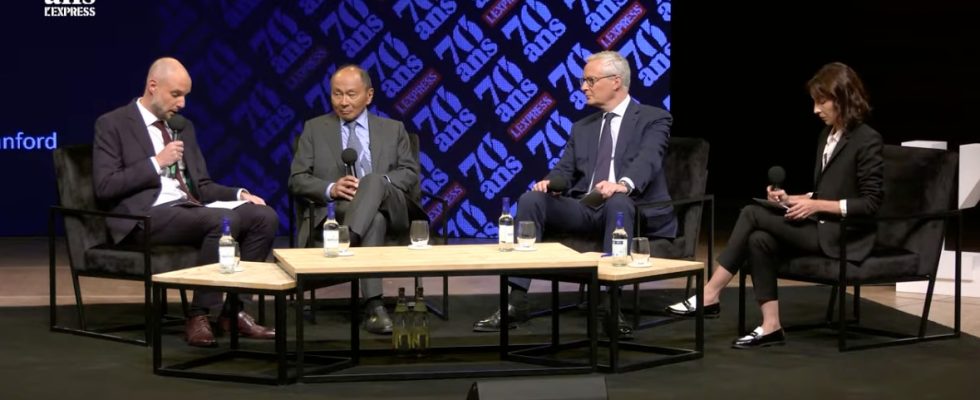On the end of liberal democracy. For its 70th anniversary, L’Express, whose liberal commitment is intrinsically linked to the democratic question, questioned the future of this Western model. In other words: Will democracies die? During a long exchange, the Minister of the Economy and Finance Bruno Le Maire and the philosopher specializing in international relations Francis Fukuyama examined the various challenges facing Western democracies today.
While international balances are upset by the Israeli-Palestinian conflict or the war in Ukraine, the question remains relevant: is it possible to no longer respect the rules of the international game, established after the Second World War? Consensus on the subject between Bruno Le Maire and Francis Fukuyama. For them, following the path of authoritarian regimes would be the best way to weaken democracies. Citing the examples of Iraq, Afghanistan and Syria, the Minister of the Economy draws a main lesson: “Every time democracies have not respected the principles of law, morality or “the authority they assumed for themselves, they came out weakened.”
“I never believed in the clash of civilizations”
But then the question of coexistence between a Western world and a Muslim world arises. Should we believe in the clash of civilizations thesis defended by Samuel Huntington – Fukuyama’s professor at Harvard – in his 1996 work? Here again, the two speakers agree: it is not appropriate to understand this point in terms of a civilizational shock. On the contrary, they defend the idea of a world order which would be “transactional”, as the Minister of the Economy says, in which everyone would try to defend their interests by all means, but which could only be replaced by a more solid international order, of which the democratic model would be the foundation.
For the latter, it is still necessary to succeed in maintaining attractiveness, remaining desirable in the face of the affirmation of individual and identity communities. The challenge, specifies Francis Fukuyama, consists of “creating a sense of nation that does not depend on skin color, ethnicity or a particular characteristic”. It is also the strength of France, he says, to have been one of the first modern democracies to create this republican identity, a model of shared identity to which every liberal democracy should aspire. The idea here is to combine the notion of a collective nation with that of a liberal democracy, which increasingly affirms the freedom of the individual. And for Bruno Le Maire, this common identity would be united by three pillars: a language, a history and a project. Pillars which remain more relevant than ever, and make Bruno Le Maire and Francis Fukuyama say that progress can, in the years to come, only be put at the service of liberal democracies, which are intended to become the majority.
